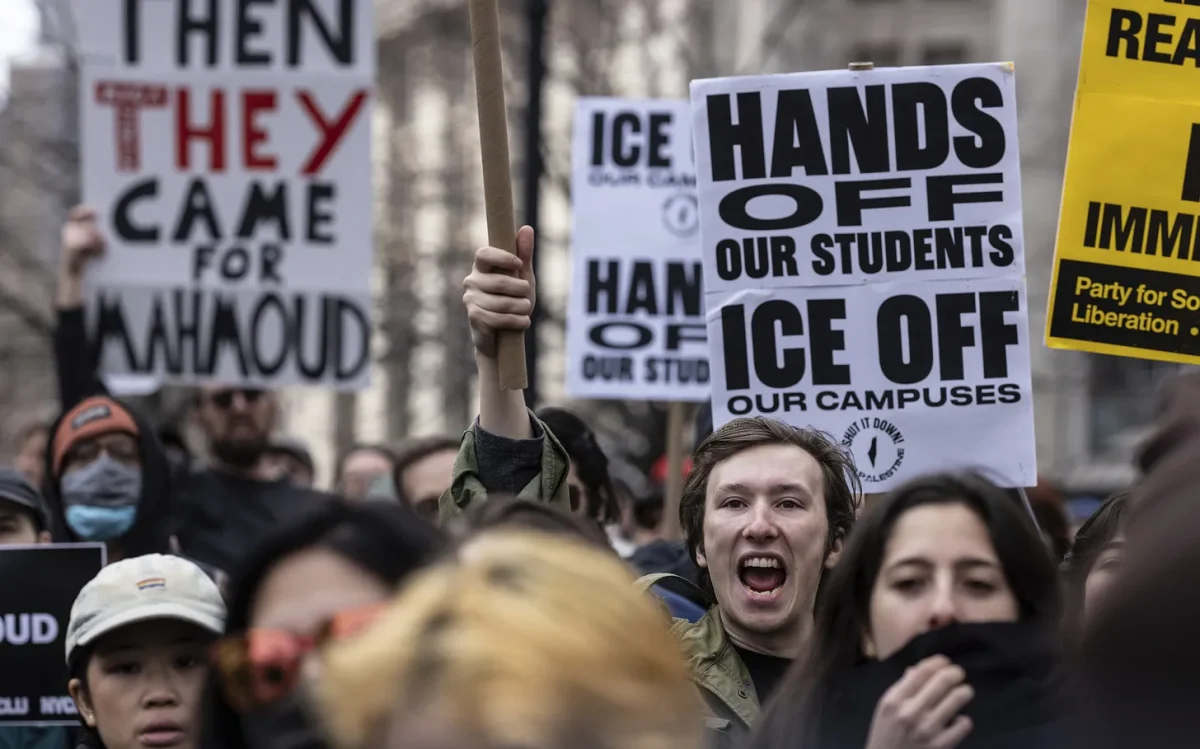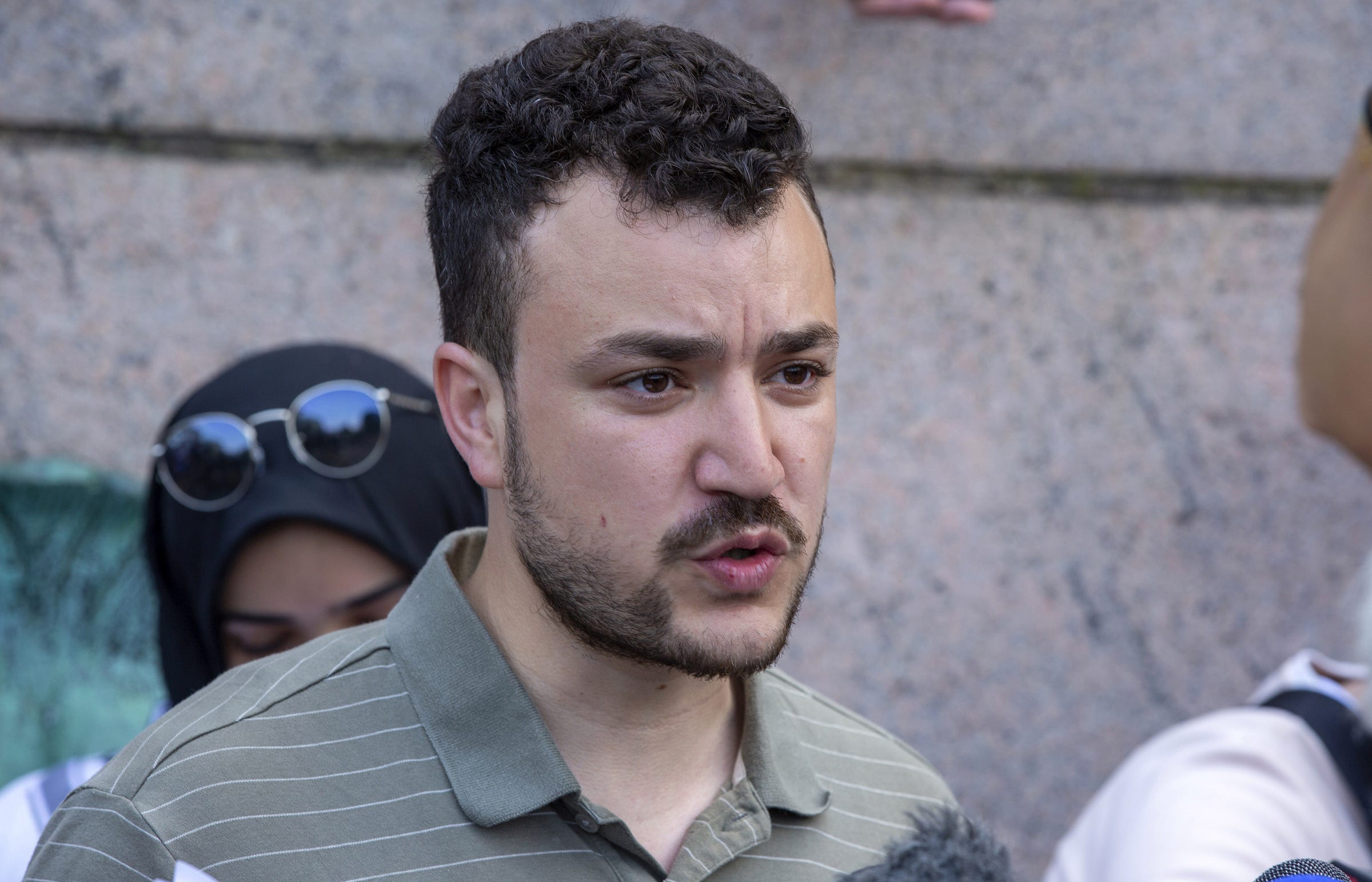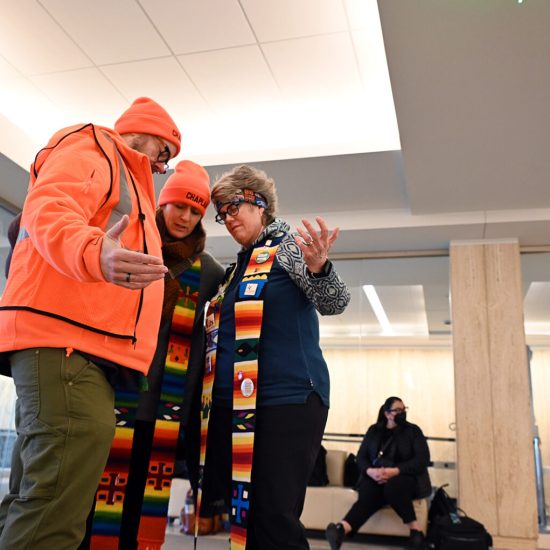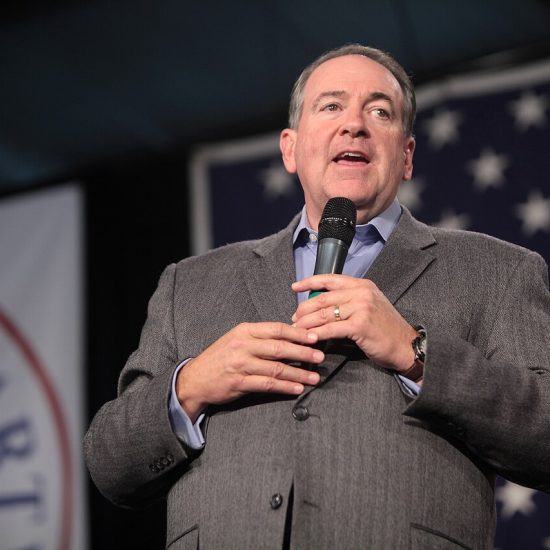
The “First they came…” poem by German Lutheran minister Martin Niemöller is overused. But when we’re talking about the case of a government literally coming for someone, it’s time to listen to the repentance of a man who initially supported Adolf Hitler before eventually being sent to concentration camps for turning against the Nazi regime:
First they came for the socialists, and I did not speak out — Because I was not a socialist. Then they came for the trade unionists, and I did not speak out — Because I was not a trade unionist. Then they came for the Jews, and I did not speak out — Because I was not a Jew. Then they came for me — and there was no one left to speak for me.
Now, a new they — the U.S. government — are coming for a Palestinian student activist for exercising his free speech rights. We’ll see who will speak out.
On Saturday (March 8), Department of Homeland Security agents detained Mahmoud Khalil, a Syrian-born Palestinian who is a graduate student at Columbia University in New York City. They initially told Khalil he was being detained because his student visa had been revoked. However, Khalil has a permanent resident card (more commonly called “a green card”), which seemed to surprise the agents and is a much stronger status that cannot be easily revoked. Despite that, they still took him away even though he hasn’t actually been charged with a crime. His wife, who is a U.S. citizen, is eight months pregnant with their first child and was also threatened with arrest by the agents. The two were confronted by agents as they returned home from an Iftar dinner, which is a religious observance when Muslims break the fast together during Ramadan.

Mahmoud Khalil speaking on the campus of Columbia University in New York City on April 29, 2024. (Ted Shaffrey/Associated Press)
President Donald Trump heralded the arrest, claiming Khalil is “a radical foreign pro-Hamas student” because of his effort in leading protests on Columbia’s campus against Israel’s military actions in the Gaza Strip. And although the White House claims Khalil is antisemitic, it coopted a Jewish saying to mock Khalil’s arrest, writing on Elon Musk’s X platform, “Shalom, Mahmoud.”
Khalil was sent to an Immigration and Customs Enforcement facility in New Jersey and then another detention center in Louisiana as the government says it plans to deport him. A federal judge has blocked the U.S. from deporting Khalil yet and yesterday ordered the government to allow Khalil to talk to his attorneys. Because he has a green card, he can only be removed if the secretary of state deems him a national security risk. And so Marco Rubio, the son of Cuban immigrants who were not U.S. citizens at the time of his birth, is seeking to deport a legal resident for expressing a differing political opinion.
Those of us who aren’t Muslims protesting Israel’s bombardment of Palestinian civilians in Gaza might be tempted to shrug at the arrest. But the case is not only more complicated legally than the White House has tried to frame it (because of his green-card status), but it also represents a chilling attack on free speech rights. And as Trump quickly promised, “This is the first arrest of many to come.” So this issue of A Public Witness explores the Khalil case and the Christian and other religious voices speaking out for him.
Setting the Stage
Following the deadly Oct. 7, 2023, terrorist attack by Hamas on Israeli citizens and Israel’s deadly military campaign against the Gaza Strip, protests erupted on various U.S. college campuses. Columbia University was among the most prominent hotspots as many students protested Israel’s military efforts as genocide. There was also a spike in antisemitism on campus and elsewhere in the United States. The response by school officials and state and national politicians, however, often cast the entire protest effort as inherently antisemitic, as if any criticism of Israel’s government was invalid. Amid the protests and criticisms from politicians, Columbia’s president suddenly resigned last summer.
A group of more than two dozen Jewish faculty members at Columbia wrote in September 2024 that two things are true: there were “disturbing incidents” of antisemitism on campus and university officials wrongly called too many things antisemitic. The professors denounced “all instances of harassment, intimidation, and violence against students for being Jewish.” They also noted that some of the efforts to document such antisemitism use “slippery definitions” and “outright factual misrepresentations.” Thus, they criticized “a broader right-wing movement to weaponize charges of antisemitism in the interest of not only suppressing political speech critical of the state of Israel but also of undermining the legitimacy and autonomy of democratic institutions, including universities, public K-12 schools, and unions.”

The rest of this piece is only available to paid subscribers of the Word&Way newsletter A Public Witness. Subscribe today to read this essay and all previous issues, and receive future ones in your inbox.






